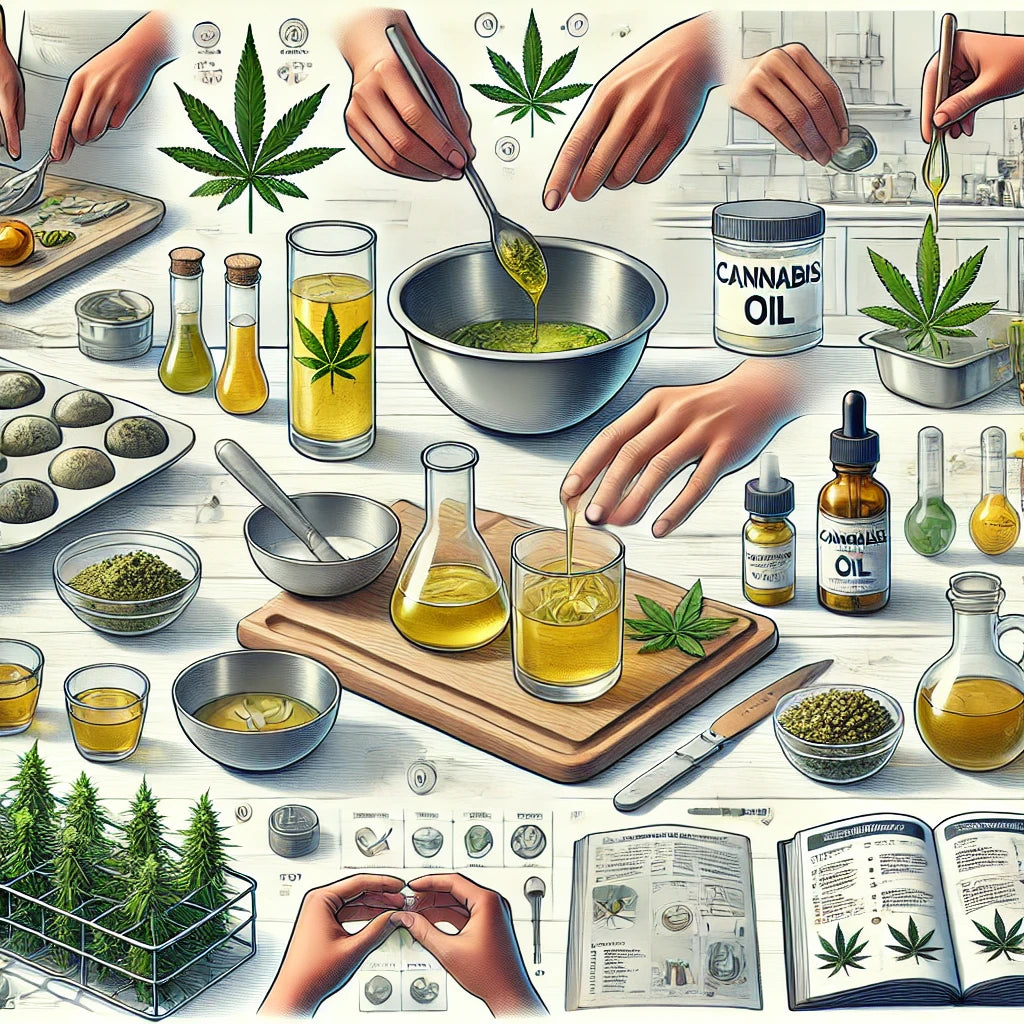Best Practices for Incorporating Cannabis into Recovery
For many, the intersection between cannabis and personal wellness is uncharted territory, a frontier yet to be fully explored. As public perception evolves and legal barriers crumble, the conversation around cannabis is broadening to include its potential in various aspects of healing and recovery. Whether you are navigating the rough waters of addiction recovery, or seeking to incorporate mindful consumption into your wellness routine, there are ways in which cannabis can be wielded to enhance the recovery process. Here, we delve into the nuanced world of responsible cannabis use for those on a journey toward improved health and well-being.
Understanding Cannabis and Recovery
Cannabis is a complex plant with over 400 chemical entities, of which more than 60 are cannabinoid compounds. The two primary cannabinoids identified are THC (tetrahydrocannabinol) and CBD (cannabidiol), each with distinct effects on the human body. When it comes to recovery, these compounds can be both allies and adversaries.
The Medical Case for Cannabis
Research suggests that cannabis, particularly CBD, may possess anti-inflammatory properties, making it an enticing prospect for those recovering from injury or seeking relief from chronic pain. Additionally, some studies indicate that cannabis can aid in sleep, appetite regulation, and mood management—fundamental aspects of the recovery process.
The Role of Cannabinoids in Behavioral Health
THC, the psychoactive component of cannabis, can induce feelings of euphoria and relaxation. While these sensations can be therapeutic in moderation, for individuals with a history of substance abuse, THC's properties may trigger relapse. Therefore, careful consideration of the individual's health history is paramount when assessing the role of THC in recovery.
Dos and Don'ts of Cannabis Use in Recovery
- Educate Yourself: The first step to responsible cannabis use in recovery is education. It is crucial to understand the potency and effects of different strains and consumption methods. Knowledge empowers users to make informed decisions and reduces the risk of adverse experiences.
- Practice Mindful Consumption: For those in recovery, the concept of using cannabis mindfully is critical. This means consuming with intention, awareness, and respect for the plant and its effects. Mindful consumption ensures that cannabis uplifts rather than hinders the recovery process.
- Seek Professional Advice: Before integrating cannabis into a recovery plan, consult healthcare providers familiar with your journey. They can offer personalized insights and recommendations, factoring in your medical history and current health needs.
- Avoid Mixing with Other Substances: Substance use is often part and parcel of recovery. If using cannabis, avoid mixing it with alcohol or other drugs. Such combinations can be unpredictable and may increase the risk of negative outcomes.
Choosing the Right Cannabis Products for Recovery
Not all cannabis products are created equal, and when it comes to recovery, quality matters. Opt for products that are lab-tested for potency and purity, and choose organically grown cannabis whenever possible to minimize exposure to harmful chemicals and pesticides.
Cannabinoids Ratio: Finding the Right Balance
CBD-dominant products are often the go-to for recovery due to their non-intoxicating nature and potential therapeutic benefits. However, some find relief from THC-dominant products that align with their recovery goals. Understanding these ratios and their effects is crucial in personalizing one's recovery with cannabis.
Consumption Methods
Different consumption methods have varied onset times and durations of effects. Inhalation through smoking or vaporization offers rapid relief, which can be beneficial for breakthrough pain or moments of high anxiety. Edibles and tinctures, on the other hand, provide a steady and longer-lasting effect.
Integrating Cannabis into a Recovery Routine
The key to incorporating cannabis into recovery is balance. Develop a routine that prioritizes traditional therapies, mindfulness practices, and healthy habits. Cannabis should be a supplemental tool, not a crutch, in the recovery toolbox.
Mindset Matters
Approach cannabis use with a positive mindset and clear intentions. Using it to enhance yoga or meditation sessions can deepen the practice, while using it as a coping mechanism may lead to an unhealthy relationship.
Journal Your Experience
Keeping a cannabis journal can be illuminating, tracking dosages, strains, and effects. Over time, patterns may emerge that inform and refine your approach towards using cannabis in recovery.
Social Support
Discussing cannabis use with a supportive community can provide a wealth of knowledge and perspective. Support groups specifically geared towards cannabis and recovery can be invaluable.
Conclusion
Cannabis and recovery are not an inherently antithetical combination. When approached with intention, knowledge, and responsibility, cannabis can be an effective tool for well-being and healing. It is essential, however, to appreciate that recovery is deeply personal, and what works for one may not work for another. Each individual’s journey with cannabis in recovery will be as unique as they are. Embrace the journey, but do so with open eyes, an empathetic heart, and a thoughtful mind.
Remember, the road to recovery is often long and winding, punctuated with peaks and valleys. If cannabis is a part of your chosen path, tread it with care. Seek the wisdom of health professionals and experienced users, and know that you are not alone. Together, we can navigate this new terrain with grace and respect, harnessing the power of cannabis to aid us in our pursuit of wellness and a life in full bloom.
Find Your Nearest Ashario Location for Premium Cannabis and Wellness Products
For further information and to explore the expansive selection, visit Ashario's website at www.ashario.ca.
Important Notice: Content on this website is intended strictly for informational purposes. Ashario does not promote any product or represent that the products mentioned on Ashario's website are treatments for any kind of medical condition. Ashario cannot guarantee that information provided is error-free or complete and is not responsible for the quality of the information provided by users. Ashario does not endorse any user-reported information, any particular strain, product, producer, organization, treatment, or therapy.








